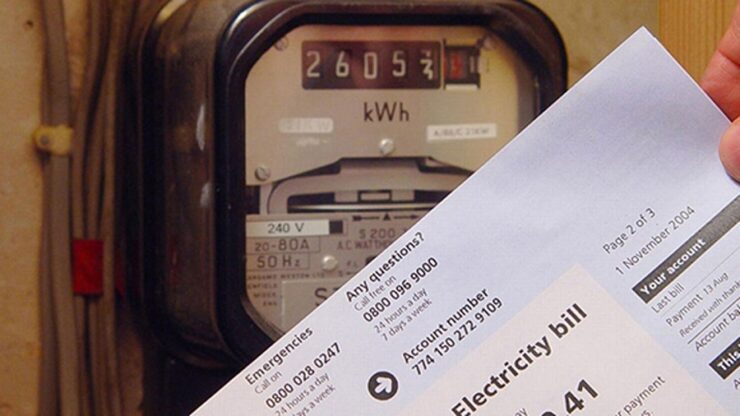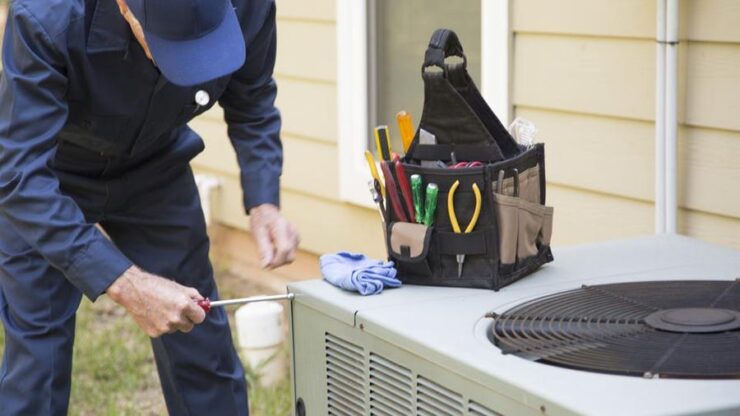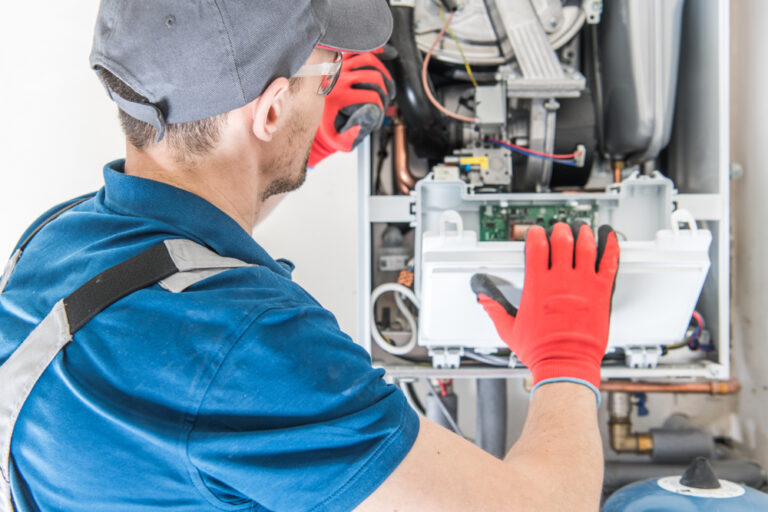Your home’s heater is necessary for both comfort and security. All households should be equipped to protect themselves from high cold temperatures throughout the winter months. Of course, heaters, like any other home device, require routine examination and maintenance. Heaters must be kept clean both inside and out, and individuals must check different types of heaters to ensure that it is functioning appropriately to maintain safety within their homes.
It’s critical that your gas heater is in good working order before the cold season arrives each year, but how frequently should you have it inspected? You’ve probably heard everything from “service twice a year like clockwork” to “our heater has worked well for decades without being serviced.” How often should you have your gas heater serviced to maintain it safely without going overboard? Here’s the answer to all your queries.
Is It Necessary To Keep A Gas Heater Serviced?
Gas heaters, like other household appliances, need to be maintained and repaired as required. Assuming or deferring such maintenance and repairs can result in serious injuries. A minor flaw, such as a gas leak, raises the risk of an accident. Regular maintenance ensures that your gas heater is working at peak performance and that any faults that could result in carbon monoxide fumes are addressed. It is also necessary to hire a reputable gas heater service. You can view more if you are seeking the best heater inspection services in your town.
How Often Should You Service Your Gas Heater?

How often should your home’s gas heater be inspected? The answer to this question is contingent on several variables. If your home uses a lot of heat, relies heavily on the heat in the winters, or has a sensitive gas heater design, an examination every six months is a good idea. This preventative work will ensure that any and all problems are discovered early and prevented, like going to the dentist so frequently.
Gas heaters are a necessary piece of household equipment in areas where it snows inches to feet every year, and yearly winter storms are the norm. You should get your gas heater tested at least once a year, if not twice a year, to ensure that it is in good working order whenever you need it.
Homes in warm climates with minimal winter have been constructed to use fewer heaters. Gas heaters are commonly found in household HVAC systems, yet they are rarely used throughout the year. You should arrange an examination every two to five years in these climates, whether you think you need it or not.
In this situation, the inspection guarantees that your filter is clean, your cables are in good working order, and there isn’t too much dust in the system before turning it on for the winter.
Even though there is frost every winter, a gas heater is still necessary to keep the family safe throughout the seasonal chill. An annual inspection and maintenance are required for gas heaters which are common in these areas. It guarantees that your gas heater is in good working order and ready to use again. Minor faults, such as a clogged flue or a faulty seal, can endanger the entire house.
Annual gas heater services are advised for most people in the early autumn or late spring. Annual gas heater service ensures that your heater remains in good working order from year to year and that you never go more than twelve months without detecting a hidden issue.
Benefits of a Regular Gas Heater Service
-
It Aids In The Reduction Of Energy Bills

Maintaining your gas heater according to the manufacturer’s recommendations will help you save money on electricity. It is crucial since it enables you to save money on your energy bill each month. The gas heater repair professional will perform any necessary repairs and maintenance during routine service to keep your heater running efficiently.
For example, to reduce friction on moving parts, the technician will lubricate all the moving parts of the machine. He’ll also replace any blocked filters that make your heater work harder and longer to heat your home. Regular maintenance can reduce the amount of money you shell out for the monthly electricity bill by making the device work more efficiently.
-
Your Gas Heater’s Lifespan Is Extended
Servicing your heater not only ensures that it runs smoothly and efficiently but also extends its life. Dirt can reduce the lifespan of your gas heater by forcing the heat exchanger to work twice as hard to heat your home. A specialist will clean the furnace thoroughly and repair worn-out parts during a routine inspection to ensure that your heater performs smoothly and efficiently, which will further aid in its longevity.
-
Increased Security

Carbon monoxide is produced in a microscopic amount by a clean, well-maintained fuel-burning device, which is usually taken away by the venting mechanism. A dirty or malfunctioning system, on the other hand, can produce far higher volumes of this lethal, odorless gas, posing a threat to your home’s residents. The expert will inspect the burner combustion, gas connections, and heat exchanger as part of your heating maintenance plan to ensure that all elements are in good working order.
-
Enhanced Productivity
Your heating system’s efficiency will decline over time. It is simply a part of life. Moving parts begin to wear down, causing the system to work harder to complete tasks. Regular heating maintenance is an effective way to slow down the aging process. The technician will lubricate moving parts, replace old belts, and generally maintain the system during their visits. It could also help the system run more efficiently.
Conclusion
What is the recommended servicing interval for a heater? No matter what environment you reside in, the optimum response is roughly once a year. It guarantees that no concerns go unnoticed for more than a year. Instead, arrange twice-yearly checks if you live in a harsh climate or have a high-maintenance heating system. Your one or two visits should coincide with the essential season for your home – either the winter chill or the summer heat.

